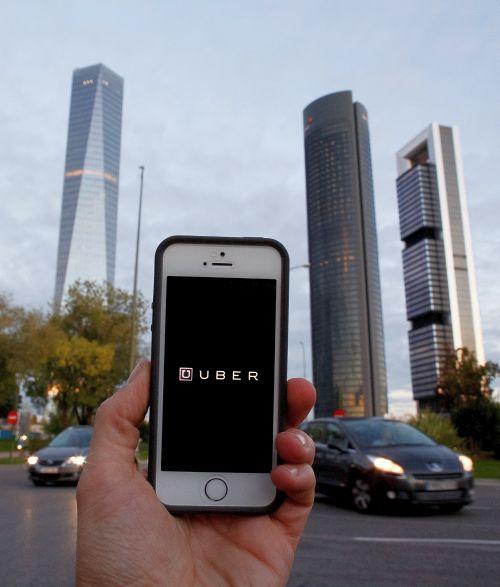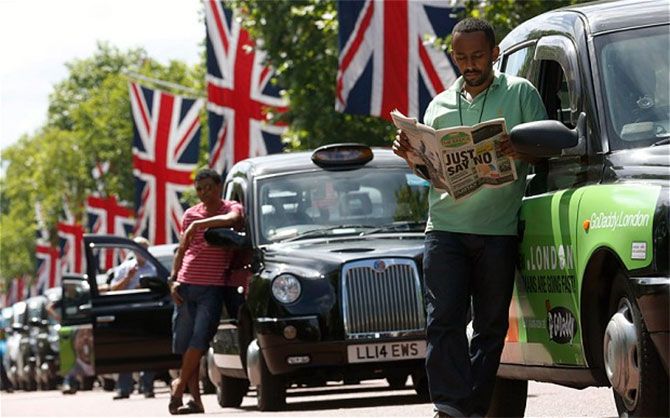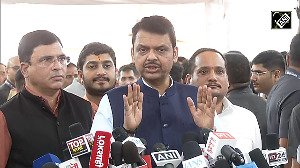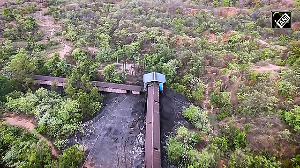'Competition makes us better. I lose a little bit of sleep because I have competition.'

Travis Kalanick, co-founder & chief executive of American taxi aggregator Uber, says India’s autorickshaw industry is akin to New York’s taxi industry - both offer fixed price and fixed supply.
But, “the controversial thing Uber does to help one person take another person across town is all about flexible price and flexible supply... and that makes the fundamental difference,” Kalanick tells Shekhar Gupta on NDTV’s Walk the Talk.
Edited excerpts:
It’s not your first time in India, is it?
It isn’t. The first time was in 2007. We were a small team of six or eight coders - a bunch of computer science guys whose business was coding, which could be done from anywhere.
So, we flew down to Trivandrum and took a bus to Varkala. There, we coded for a month from the beach.
The next time wasn’t until Uber a couple of years ago... I have probably been here half a dozen times in the past few years.

We know your story about New York’s 13,250 taxis. How you monetised the licences...
That’s the story of New York’s taxis. To make the story clear, today we have 13,250 taxis in New York; we had the same number 60 years ago.
New York has changed so much - it’s a very different place today - but the number of taxis is the same.
The reason is, there are regional taxi guys who got their licences free, and then they lobbied with the city government to give no more licences, creating an artificial scarcity.
Later, they lobbied to be allowed to trade licences. One licence to own and operate a taxi peaked at $1.2 million a year ago.
Why? A driver pays $150 a day to rent a car, because he has to ask for permission to be a taxi driver; he cannot just go into the business.
For paying $150 a day, or $40,000 a year, to rent a car, the taxi driver is impoverished.
In your talks, you like to use the Indian term ‘jugaad’. There is another Indian term that explains the situation with taxis. It’s pagdi — when you rent your house to me, I am never going to leave; I will probably sublet it. And, to get me out, you will have to pay me millions of dollars...
True, what you have got out of that system are too few taxis; a system where drivers cannot have a business for themselves; and an underserved city with fewer jobs, too much traffic, pollution and drunk driving - all bad things.
We go to the mayor and say, “If we launch next year, we will create 20,000 jobs, reduce congestion, traffic and drunk driving. We will make the city more accessible to people.”
But, the taxi industry is often so intertwined in the fabric of politics of the city.
The mayor, even with such a pitch, says “Maybe”. Of course, we often partner with cities to make great things happen.

You are an engineer and a coding geek. You wanted to be disruptive. But, why taxis? It sounds as downmarket, or as low-tech, as it can.
You should not judge ideas. An idea can be beautiful for a whole bunch of reasons.
For me and the co-founder of Uber, this idea started with a personal need. Today, it has reached way beyond we imagined when we started.
We just wanted to push a button and get a ride. That’s cool, but making it work by solving problems was complicated, sometimes tedious.
Putting the pieces together and making them work is fun.
Imitation is the best form of flattery. Today, you have so many Uber-like services all over the world.
Yes, you have some like Ola raising millions of dollars, in some cases billions.
But, competition makes us better. I lose a little bit of sleep because I have competition. The good part is consumers and drivers are better off.

You have a vantage point. You see nations, nationalities and cultures through their drivers and passengers. What’s your description of the world?
We are present in 68 countries. It’s their texture and richness we get to see.
There are many cultures and places; you see the difference. When we go to a new city, somebody comes and says, “You should not be here.” I ask why and the person replies, “Look, it is never going to work... we are different here.”
And, they are...
Yes, but when it comes to pushing a button and getting a ride, they are not.
Are there Uber stories of cultures and countries?
We are in some of the most expensive cities like Stockholm, and also in developing economies like those in Southeast Asia.
You go to Jakarta, and your Uber Black will be a Toyota Corolla. It’s a nice ride. In Jakarta, that’s amazing.
An Uber Black in Stockholm will be an S-classic standard, a $150,000 car. Different economies look at it differently.
You go to China, and there are rules against pretty much everything. But, progress always finds a way.
You see - and it is true for India, too - that there is an allowance for grey areas in the regulatory system. In Japan, though, the law is the law; bending it is not an option.

There is no jugaad around the law?
Correct. Different cultures look at laws differently, so we don’t really have much of a business in Japan, Germany or Korea.
In Germany, for example, if you call for a car and it is five minutes away, by law it has to go back to the garage and come back to pick you up.
That law exists to protect taxis, but it will be enforced against us. So, we cannot provide a low-cost service.
You have to adapt.
Autos are big in India. How do we deal with that? Should Uber do autos, or not?
The autorickshaw industry here is identical to New York’s taxi industry. They are where we started — they have fixed price and fixed supply.
But, we have flexible price and flexible supply. That’s the fundamental difference. If you see anything that Uber is fighting for in a city, it is about flexible price and flexible supply.
The controversial thing Uber does to help one person take another person across town is all about flexibility.
It's about finding ways to progress past laws designed to protect incumbents.
What is the rudest thing somebody said to you?
These are usually only on Twitter. What I say is, despite all the controversy, at the end of the day, 99.99 per cent of people are good people.

And, they want to reach home safe... We had an issue in India around safety and you had to communicate...
You have to do everything you can to make a ride from point A to point B the safest way to get from point A to point B.
Our aspiration is to make Uber the safest place in the city. You have to look at things to do before a ride, during a ride and after a ride.
Before, you do background checks, verification, etc. During, rides are tracked by GPS, so both driver and the rider are accountable.
You can let your friends and family see the ride happening on the internet. And, after, there are comments with which we can make systems safer.
What do you make of Prime Minister Narendra Modi’s description of you at the (Startup India) summit? He called you ‘Uber Kuber’. Kuber is the Hindu god of wealth...
Well, his comments were in a context. We never thought about money when we started.
Our action was about solving the problem, then it became a love for solving problems of lots of people, and then wealth came.
I think the PM meant just falling in love with the problem to solve it. Something then will happen quickly; that is a flash point to inspire entrepreneurs to do amazing things.
That is what was ‘Startup India’ all about - for the government, it was about opening things up for the great minds of India.
I feel innovation and technology here are soaring high, hitting an inflexion point.
I think he (Modi) said something like “we may have a million problems but we got a billion minds”.











